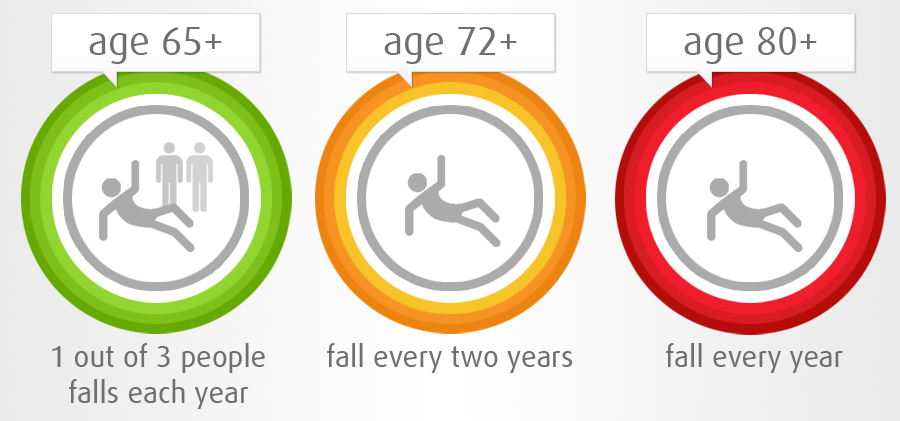The single largest cause of fatal and non-fatal injuries to American seniors comes from falling.
- Nearly one in three seniors in the U.S. live alone. Having nobody else around in the home to hear a fall or cries for help can leave a senior to have to fend for themselves after a fall.
- An older adult’s body is more fragile and more susceptible to injury, making the consequences of a fall more dangerous.
- Because a senior is more likely to get hurt during a fall, there is less of a chance they will be able to get back onto their feet afterward. When coupled with living alone, an older adult who falls could potentially be stranded on the floor for a prolonged period of time.
After a fall, an older adult might develop a fear of moving around, and their quality of life may slowly diminish as their socialization decreases and they participate less in hobbies and outside interests.
Leading Causes of Falls for Seniors
- Prescription medication side effects
- Physical limitations
- Canes and walkers
- Vision problems
- Ill-fitting clothing
- Poor nutrition
- Fatigue
How to Minimize Your Fall Risk as a Senior
- Monitor your prescriptions
- Prep your environment
- Eat right and improve your physical fitness
- Wear the right shoes
- Make small repairs
- Live on one floor
- Have your eyes checked
What to Do If You Fall
Even if you do everything possible to help prevent yourself from falling, it’s important to know what to do in case you ever do suffer a fall. Keep these tips in mind in case you ever find yourself the victim of a fall.
- If you think you can get up, try to do so. Start by lifting your upper body onto your elbow and forearm. If you are able, try to also get onto your knees. Then crawl or pull yourself to a stationary object like a piece of furniture and use it to lift yourself up.
- Yell out for help if there may be someone within earshot.
Attempt to slide yourself to your landline phone or cell phone and call for help. If you cannot reach the phone yourself, use something like a cane, umbrella or other object to pull the phone within reach. - Use your medical alert device if you wear one.
- If you are expecting someone at your house later on, get into a safe and comfortable position and wait it out.
- After suffering a fall, make a doctor’s appointment to have yourself examined, even if you do not feel any pain. There may be an undetected injury or medical condition that either contributed to the fall or resulted from it.
- You should also determine what caused the fall and assess any ways to eliminate that risk in the future.

